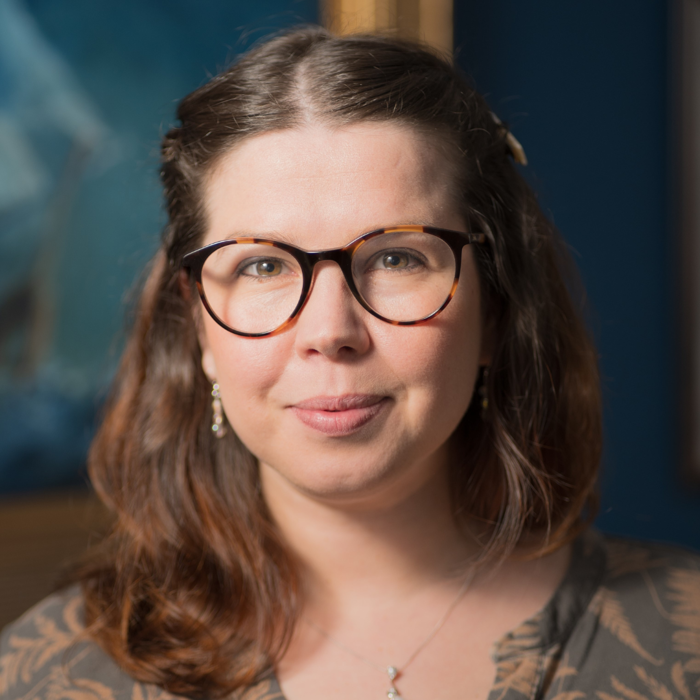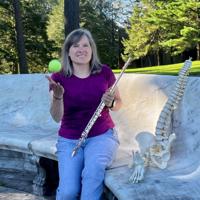Becoming Grounded - Awareness & Movement in the Voice Studio
Thursday 18th January 2024, 5:00 PM - 7:00 PM (London Time)
Being grounded is a dynamic relationship between the floor and performing artist. A good relationship supports artistic expression and the development of reliable technique. This workshop will guide you to understand the physical connections that contribute to being grounded and introduce you to methods to teach, practice, perform and live while being grounded.
The workshop will feature balance concepts from the Body Mapping course ‘What Every Musician Needs to Know About the Body’, which will provide a map for our movement. Body Mapping grew out of the Alexander Technique and is the conscious updating of body maps that guide all movement.
With a clear understanding of the key places of balance, we will integrate movement patterns. The patterns begin with weight shifting in the feet which can resonate up through the body. These memorable patterns guide the body to remain grounded as we move in a balanced way. The patterns have been adapted from Core Movement Integration and Drew Ricciardi’s themonkeybodyTM method.
Integrating awareness of the body and movement into practice will enhance the learning process by providing access to subtle nuanced movements that create exquisite musical expression. Additionally, with practice these movement patterns will become a basis for performing choreography in the practice room, onstage in recital, ensembles or productions, or when leading a group. Participants will have tools and strategies for integration into performing and teaching.
Vanessa Mulvey
Vanessa Mulvey balances work as a flutist, Body Mapping educator, personal trainer and parkour coach. She is a faculty member at the Longy School of Music of Bard College and New England Conservatory of Music.

Attend this course for as little as £22 as part of the Voice Professional Training CPD Award Scheme.
Learn MoreSorry, this is an archived short course...
We have plenty of upcoming short courses coming soon. See details of some of them below or look at the full list of short courses.

Monday 7th July 2025
2:00 PM - 4:00 PM
Tuesday 8th July 2025
2:00 PM - 4:00 PM
Wednesday 9th July 2025
2:00 PM - 4:00 PM
Friday 11th July 2025
2:00 PM - 4:00 PM
Monday 14th July 2025
2:00 PM - 4:00 PM
Tuesday 15th July 2025
2:00 PM - 4:00 PM
Wednesday 16th July 2025
2:00 PM - 4:00 PM
Friday 18th July 2025
2:00 PM - 4:00 PM
(London Time)
Introduction to statistics and working with quantitative data for Voice Professionals: 8-Session Online Bootcamp

Dr David Cane
This certificated statistics course is ideal for individuals interested in laying a solid foundation in quantitative research methods. By focusing on essential statistical principles, you will be equipped with the tools to understand and apply quantitative research techniques effectively. Statistics is a crucial component of quantitative research; mastering it will enable you to grasp quantitative methods more confidently and precisely.


Tuesday 15th July 2025
5:00 PM - 7:00 PM
(London Time)
Exploring the roots of the tongue: Ideas for performance

Walt Fritz
As a relative outsider looking into the voice and performance world, I witness the bell curve of thoughts and actions on how the tongue contributes to voice problems and how best to tame that tension. Traditional ways of taming tongue tension seem adequate (or would seem so, based on feedback), so what is different and new? In this short course for the Voice Study Centre, Walt Fritz will introduce the learner to variations on self-applied tongue stretches and exercises.


Wednesday 16th July 2025
2:00 PM - 4:00 PM
(London Time)
Emotion and Performing Accents and Dialects: why does Emotion Get in the Way?

Louisa Morgan
At points of heightened emotion, it is common for actors working in an accent to default to their natural speech. How do we help performers to avoid this issue and provide them and their directors with the confidence they need regardless of the emotional demands of the piece? What can we learn from research in vocal expression of emotion to help actors to embody the emotion and keep control of their voice and accent? Our very own Louisa Morgan will guide participants through the latest research and offer practical suggestions for working with performers needing to navigate this challenge.
